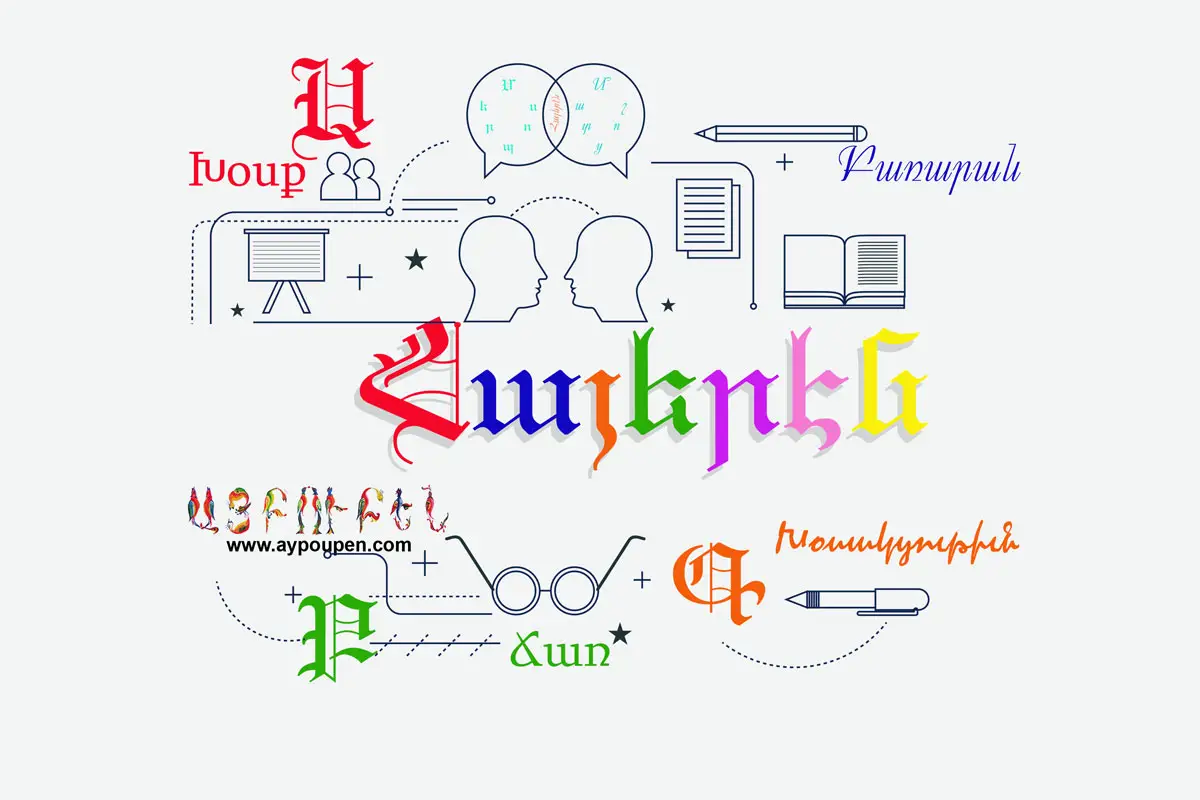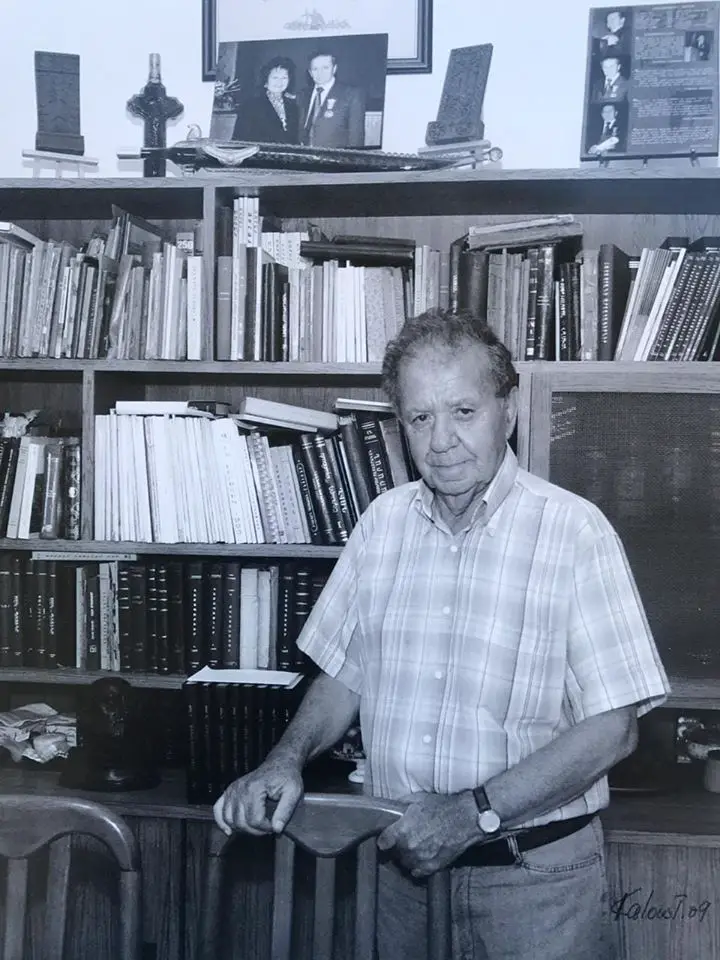Many Western Armenians who somehow survived the Armenian Genocide of 1915 ended up in Lebanon, Syria, Iraq, Jordan, Palestine, Cyprus, Greece, France, Bulgaria, Romania, etc. Wherever the orphans or families reached, they worked hard to survive and thrive.
The organizations and the Church helped open schools and educational centers for the new generations. Soon they became doctors, dentists, engineers, architects, pharmacists, lawyers, judges, scholars, and politicians.
The Western Armenian Language is less spoken in some areas; on the contrary, it is very indestructible depending on the location. Because of the war in the Middle East and the for financial reasons, many families moved to more peaceful countries in Europe and America or even Armenia.
The population in these Western Armenian-speaking communities decreased but is still being used as much as before.
Many Educational Institutions were closed for good. This resulted normally in an increase in other countries where new schools replace the closed ones. We can say the geographical locations have changed.
The Middle Eastern Diasporans became Canadian or US Citizens, so although fewer people speak Western Armenian in Beirut or Aleppo, more people speak Armenian in Marseilles or Glendale. Moreover, nowadays, Armenian Organizations are offering online lessons in Western Armenian as it is in demand.

Is the Western Armenian language Dying? or Endangered?
According to UNESCO, the Western Armenian Language is listed as A DYING LANGUAGE. “Definitely endangered,” they say, putting it on a map of the world’s dead and threatened languages.
The western Armenian Language is not dying. Around 7 million people around the world speak Western Armenian. Schools of the Diaspora still teach Western Armenian, in addition to the Yerevan State University and various online educational Institutions.
According to the United Nations Educational, Scientific, and Cultural Organization’s Atlas of the World’s Languages in Danger, when languages die, they take with them legends, proverbs, stories, traditions, memories … The map reveals that only 200,000 people speak Western Armenian in Turkey and in the Diaspora.
Why is The Western Armenian Language Endangered?
In other words, in plain English, as perfectionists, when it comes to the Armenian Language, we are so in love with our language that we are afraid to lose it or damage it. Living in the diaspora and having different dialects, we keep criticizing each other instead of embracing our differences, helping each other grow, and shining together.
Some prestigious Armenian schools teaching high-level Armenian language and providing students jobs in Armenian institutions while underestimating other schools is just not enough to keep the torch burning if we do not inspire individuals from different locations and environments to rise and enlighten their surroundings.
Why is The Western Armenian Language Endangered?
In other words, in plain English, we are perfectionists. When it comes to the Armenian Language, we are proud people. We rather not use the Armenian language, so we don’t damage it.
Living in the diaspora and having different dialects, we keep criticizing each other instead of embracing our differences, helping each other grow, and shining together.
Some prestigious Armenian schools in the Diaspora teach high-level Armenian language and provide their students with jobs in Armenian institutions while underestimating students from other schools. This discourages students. Why should they learn Armenian if they will never use it in their businesses?
It is just not enough to keep the torch burning if we do not inspire individuals from different locations and environments to rise and enlighten their surroundings.
A decade ago, google offered western and eastern versions of Armenian, but it was removed. That is why it is better to think that it is a conspiracy to rate Western Armenian as Endangered Armenians.
How to keep the Armenian Language Alive?

A few years back, his holiness Aram I, Catholicos and head of the Catholicosate of the Great House of Cilicia, urged us to write Armenian no matter what, where, or when. He has closely accompanied many generations and has seen them graduate from the Armenian National Schools while he was a Prelate of the Lebanese Diocese.
In an interview with Mr. Boghos Snabian, he recounts how he had given a chance to some young students to write under his supervision, which helped establish a circle of writers from different backgrounds. Nowadays, these writers are well-known masters in Journalism.
The Armenian Language will be alive if we use it daily on our phones and computers, even if it’s in Latin letters or with bad spelling.
Armenians are killing their Language?
In France, Greece, America, China, etc…. people insist on speaking their mother language with tourists, patients, customers, and so on, just to give them a taste of their own culture. In some of our diaspora societies.
Some people refuse to read Armenian unless it is a “lighter” language, preferring and boasting their good knowledge of “foreign” languages.
Xenomania and CataGelophobia: the extreme fear and complex of being mocked or laughed at as a community for ages…. simply for not being able to speak the local language, all this ignoring Lord Byron’s famous quote: Armenian is the language to speak with God…
According to Dr. Arda Jebedjian (Ph.D. in linguistics and teaches at universities in Lebanon and Cyprus):
“After 97 years of diasporic existence, some Armenian communities seem to have developed a defeatist, pessimistic stance towards preserving their ethnic language, with a stubborn conviction that I am French. Why should I speak Armenian? What good will it do to me in France? I am an American. I feel American. The fact that my ancestors were Armenian 100 years ago has no significance to me. Why do we always have to make it hard on ourselves?”
“Life is already hard. Don’t make it any harder. I wasn’t born in Armenia. Why should I speak Armenian? How is Armenian going to help my children find a job? There is no future in Armenian.”
How can we make Armenian Language Strong?
Back in 2015, scholars from Lebanon gathered in Aghveran Armenia for the “Western Armenian Wikipedia” Convention.
With the cooperation of Eastern Armenian Wikipedia editors, who shared experiences and methods to strengthen the usage, preserve and prevent the loss of our beloved Endangered Armenian western Language.
Training scholars and teachers who continue their work in Lebanon, and later organized training camps for students and coordinators in Armenia under the patronage of Calouste Gulbenkian Foundation.
Hoping that Armenians all around the world stand willingly united around the schools and churches to cure a bleeding attitude towards a language that needs some little extra attention and effort to survive for centuries to come.
Speaking, reading, writing Armenian, attending Church, and cultural events with our family and friends could help. We have survived in the diaspora because of our difference, our Language, The Armenian Language. Let’s pay some back.
Although the following video is an appreciated attempt, you will notice the eastern Armenian accent. When you reach “Hi,” you will notice number seven 7 written with “Hi,” which we write with “Yetch!!”
How to preserve the Armenian language
The ARPA Institute had organized a round table discussion on how to preserve the Armenian language and make it the spoken language among the youth in the Western Diaspora.
Around 60 experts, teachers, community leaders, journalists, poets, and other concerned Armenians were present. Three presentations by Dr. Hagop Kouloujian and Dr. Shushan Karapetian, both of UCLA and Ara Kazanjian, which was followed by ideas expressed by 25 individuals.
The following is a letter from one of the ARPA representatives in Armenia, Madlene Minassian Ispirian after she read the summary of the discussions:
The issue of speaking Armenian was resolved for me (and my children) when I moved to Armenia 15 years ago. I no longer had to be told to speak Armenian. It was my only choice to thrive in my new world. My children are fluent and very articulate.
Through their studies, I immerse myself in our beautiful language’s fables, literature, and intricacies. For my family, our connection to Armenia was the solution.
I am not proposing that everyone moves here (although I wish they would), but I feel a certain connection is a viable path to language preservation. Anahid Keshishian Aramouni’s intensive courses in Armenian this summer at AUA are a bright example.
Birthright Armenia is another. I know that this does not address Western Armenian, for which I am very concerned. I also believe that this is the responsibility of today’s Armenia, and not much has been done. And I am grateful this topic is being discussed and addressed.
I do know that with my increased Armenian skills, a world was opened for me- one that I wish my friends that I grew up with in the United States knew- but I am afraid most will never experience. I see this country’s development and success as the only means toward language preservation.
Much rests on the advancement of our nation, but our Diaspora is not unified on this front, and our Government and much of our population are just as detached. We need more fighters- and I am very grateful for ARPA Institute’s dedication to the advancement and development of our country- and thus our language.
